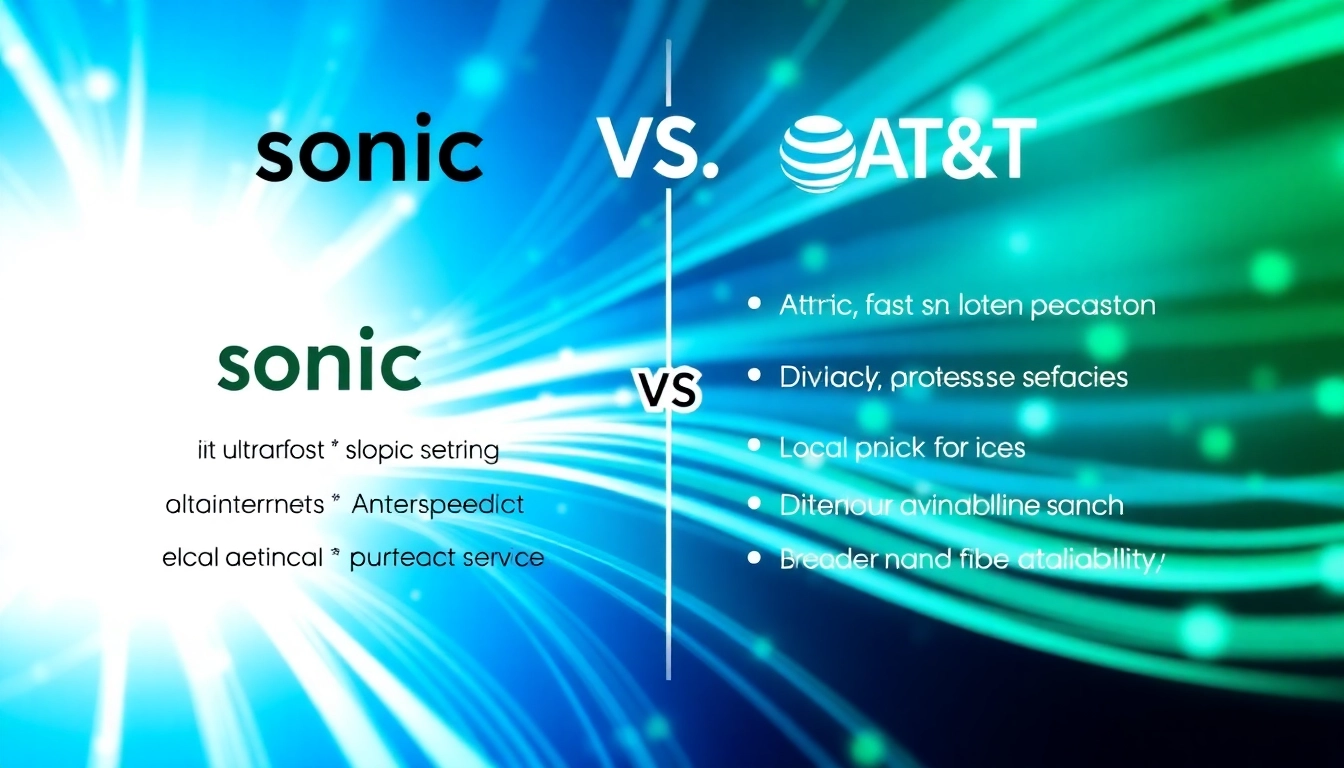Understanding IT Fredericksburg: A Local Perspective
Overview of IT Services in Fredericksburg
Fredericksburg, renowned for its historic charm and vibrant business community, is also becoming a critical hub for information technology (IT) services. As the digital landscape continues to evolve, the need for robust IT solutions has surged among local businesses. Companies in Fredericksburg are increasingly leveraging IT solutions to enhance their operational capabilities, streamline processes, and improve overall customer engagement. IT specialists in the area offer a range of services, including network management, cybersecurity, cloud solutions, and technical support tailored specifically to meet the unique demands of local enterprises. Engaging a reliable IT Fredericksburg provider is essential for businesses aiming to ensure seamless operations and competitiveness in the market.
Why IT Matters for Local Businesses
In today’s fast-paced digital environment, IT plays a vital role in the success of local businesses. The integration of technology into daily operations not only enhances productivity but also paves the way for innovative solutions that can lead to significant business growth. Companies that harness the power of IT can track customer behaviors, analyze purchasing patterns, and optimize their marketing strategies, thus enhancing customer experiences and loyalty.
Furthermore, as cyber threats continue to rise, investing in IT security becomes imperative for local businesses. Protecting sensitive information and building trust with customers hinges on employing effective IT practices. Those companies that take proactive measures in their IT infrastructure are more likely to withstand the challenges posed by technological disruptions, positioning themselves favorably against competitors.
Current Trends in IT Fredericksburg
Fredericksburg’s IT landscape is not static; it is actively evolving to meet the nuanced needs of local businesses. Some notable trends include:
- Cloud Computing: Many businesses are migrating to cloud-based solutions to benefit from increased flexibility, scalability, and cost savings. The shift to the cloud allows easier collaboration and data management processes.
- Cybersecurity Investments: With the rise in cyber threats, local businesses are prioritizing cybersecurity measures. This includes investing in advanced firewalls, encryption, and employee training on best security practices.
- Remote Work Enablement: The transition to remote work has influenced IT services, with more companies seeking tools and platforms that facilitate online collaboration and secure remote access to company resources.
- Data Analytics and Business Intelligence: Companies are increasingly using data analytics to glean insights from their data, which informs strategic decision-making and helps tailor offerings to customer needs.
Evaluating Your Business IT Needs
Common IT Challenges Faced by Fredericksburg Companies
While technology offers numerous benefits, it also poses challenges, especially for small to medium-sized businesses in Fredericksburg. Common IT challenges include:
- Budget Constraints: Many local businesses face difficulties in allocating sufficient budgets for IT investments, resulting in outdated systems that hinder performance.
- Lack of In-house Expertise: Smaller companies often lack the in-house IT expertise necessary to manage complex IT systems effectively. This can lead to mismanagement and data vulnerabilities.
- Keeping Up with Technology: The rapid pace of technological advancement makes it challenging for businesses to stay updated with the latest tools and practices.
- Cybersecurity Risks: As previously noted, businesses in Fredericksburg are vulnerable to data breaches and cyber attacks, making effective cybersecurity measures crucial yet challenging.
Assessing Infrastructure Requirements
To effectively address IT challenges, businesses must conduct a thorough assessment of their current infrastructure. This involves evaluating existing hardware, software, and network capabilities to identify gaps that must be addressed. Key considerations include:
- Current System Performance: Analyze how existing systems perform. Are they meeting the needs of the business? Identifying bottlenecks can help target improvements.
- Future Growth Projections: Consider how technology needs may change as the business grows. Scalable solutions that can expand with the business are essential.
- Technical Support Needs: Determine whether the existing support resources can handle future IT challenges efficiently.
Identifying Reliable IT Solutions
Once challenges and infrastructure needs are assessed, businesses can begin identifying suitable IT solutions. Engaging with local IT providers who understand the landscape and specific needs of Fredericksburg businesses is essential. Important factors to consider include:
- Service Offerings: Ensure the provider offers comprehensive solutions that cover all aspects of IT needs—from network management to cybersecurity.
- Customer Support: A responsive customer support team is crucial for addressing urgent IT issues as they arise. Ask potential providers about their support structure and response times.
- Reputation and Reliability: Research the provider’s reputation within the local community. Client testimonials and case studies can offer insights into their performance and reliability.
Benefits of Professional IT Support
Enhancing Operational Efficiency
For businesses in Fredericksburg, professional IT support can significantly boost operational efficiency. By outsourcing IT functions, companies can redirect valuable internal resources toward core business activities while leaving IT complexities to specialists. This streamlining of operations often results in improved productivity through:
- Quick Issue Resolution: IT professionals are equipped to resolve technical issues swiftly, minimizing downtime and ensuring business continuity.
- Access to Expertise: By partnering with IT experts, businesses benefit from in-depth knowledge of the latest technologies and processes.
- Focused Strategy Development: Outsourcing IT allows businesses to focus on strategic growth while IT partners manage daily operations efficiently.
Cost-effectiveness of IT Services
In the face of budget constraints, the cost-effectiveness of professional IT services becomes appealing. Instead of incurring hefty costs associated with hiring and training an in-house team, businesses can opt for managed IT services tailored to fit their budget.
By conducting regular assessments and implementing proactive maintenance strategies, IT service providers can help businesses avoid costly downtime. Additionally, many providers offer various pricing models—ranging from pay-as-you-go to subscription services—which can better align with the financial capabilities of Fredericksburg businesses.
Improving Data Security in IT Fredericksburg
Data security remains a foremost concern for businesses across sectors. Professional IT support helps mitigate security risks through:
- Regular Updates and Patches: Keeping software and applications updated is crucial for closing security loopholes. Managed IT services ensure these practices are consistently followed.
- Strong Cybersecurity Protocols: IT service providers implement comprehensive security measures, including firewalls, encryption, and regular security audits.
- Employee Training: Educating employees about cybersecurity best practices is a pivotal aspect of enhancing an organization’s security posture.
How to Choose the Right IT Partner
Factors to Consider When Selecting IT Providers
Selecting the right IT partner can make or break your business’s technology strategy. Consider the following factors when evaluating potential providers:
- Experience and Expertise: Look for IT providers with a proven track record of success in your industry. An experienced partner is likely to understand the challenges and needs specific to your business.
- Range of Services: Ensure the provider offers a full suite of services and can adapt to meet your evolving needs over time.
- Local Presence: Providers with a local presence often demonstrate a better understanding of your business environment and can provide more personalized service.
Key Questions to Ask Potential IT Partners
Before finalizing an IT partnership, asking the right questions can uncover essential insights into the provider’s capabilities:
- What specific services do you provide, and how do they align with my business needs?
- Can you provide case studies or references from similar businesses?
- What is your approach to cybersecurity, and what measures do you have in place to protect client data?
- How does your customer support work, and what is the average response time for issues?
Building a Long-term IT Relationship
A successful IT partnership is built on mutual understanding and shared goals. Establishing a long-term relationship with an IT provider involves:
- Regular Communication: Frequent check-ins help to align IT strategies with business objectives, ensuring both parties are on the same page.
- Continuous Evaluation: Assessing the effectiveness of IT solutions and making necessary adjustments keeps the partnership relevant and productive.
- Flexibility: Technology evolves rapidly. Both parties must be willing to adapt and scale solutions as needed to stay competitive.
Measuring IT Success in Your Fredericksburg Business
Defining Key Performance Indicators (KPIs)
To evaluate the effectiveness of your IT services, it is crucial to define key performance indicators (KPIs). These metrics can help assess the success of IT initiatives and guide future investments. Common KPIs include:
- System Uptime: Measuring the availability of IT systems helps gauge operational efficiency.
- Incident Response Time: Tracking how quickly IT issues are resolved can indicate the responsiveness of your IT support.
- Cost Savings: Analyzing reductions in operational costs attributable to IT improvements is essential for justifying technology investments.
Tools to Monitor IT Performance
To track and evaluate KPIs effectively, businesses can utilize various IT performance monitoring tools. Popular options include:
- Network Monitoring Software: This software enables businesses to oversee their network performance, helping identify potential issues before they escalate.
- Helpdesk Software: These systems can monitor support requests and response times, assisting in managing customer service quality.
- Data Analytics Tools: Leveraging analytics can provide insights into user behavior, allowing businesses to adjust their IT strategies accordingly.
Feedback and Continuous Improvement Strategies
Incorporating feedback from employees and stakeholders can significantly enhance IT performance. Implementing a continuous improvement strategy enables businesses to adapt quickly to changing technology demands:
- Regular Surveys: Periodically gathering feedback from users about IT systems can identify pain points and areas for improvement.
- Implementation Reviews: Conducting reviews following major updates or projects can help refine practices and improve future implementations.
- Stay Informed on Industry Trends: Keeping abreast of emerging technologies and practices allows businesses to remain competitive and proactive in their IT strategy.



